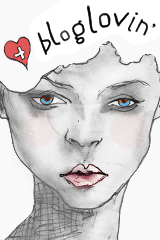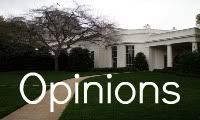The Handmaid's Tale by Margaret Atwood is not just a dystopian novel. It is a dystopian novel set in what we know as the United States in the not-so-distant future in the Republic of Gilead. Gilead was formed based on ideals born from Christian fundamentalism, and women have no power, no rights, no money, no jobs.
The plot has two main focuses: the story of the main character in the present time, and the story of her previous life and the formation of the Republic of Gilead. In short, a super-stealthy religious group took out Congress, the Joint Chiefs, The President, Vice-President and Cabinet, and then seized control in secret. Within days, all money, property and jobs belonging to women were forfeit. Money was frozen in bank accounts, and companies were forced to lay off their female workers. Doctors and nurses who at any time performed abortions or prescribed Birth Control were hunted down and executed.
This has {obviously} some drastic and real consequences for Offred, our main character. Before Gilead was formed she had partner, a daughter, a job, and a house. Now, she is a Handmaid, forced to endure monthly OB/GYN exams, monthly sex rituals to make her become pregnant, and little to no freedom. She isn't allowed to leave her house to get milk, to get food, to go anywhere without a partner. We follow Offred {that is, of Fred} in her life with a family who hates her existence. She eventually joins a small resistence, and her story ends when she is seemingly captured. However, we're not certain that she was.
Atwood is a master of forcing us to think. Could this happen here? I hope not. I suspect not. But I dare not say never. There are folks out there who would seize power in the face of religion, and given that some of those folks are prominent in current political discourse, this novel is evermore relevent. Atwood forces us to consider this possibility in a real, unabashed way. How would any of us feel given this situation? Would we simply let it happen? Would be notice until it's too late? Would people step up in our defense?
At the end of the novel, we look through the eyes of historians analyzing Offred's story several centuries later. They describe Gilead as short-lived and obscure. It's humbling to consider that our actions or inactions could cause us to be considered obscure so far in the future. It's scary to think that things could happen in the way that Atwood describes.
If you're a fan of dystopian novels {looking at you Hunger Games fans!}, you should pick this one up. It's an easy read but a compelling one. I thoroughly enjoyed the emotional journey of Offred, and admired Atwood's ability to put such horror into a strong character. Her novel leaves us with many questions, a few doubts, and a new perspective. Definitely a new favorite.
























this is a fabulous book! i read it about 8 years ago and recommend it to everybody!
ReplyDeleteThe only dystopian book I ever read was the Hunger Games trilogy, but this was sounds interesting! Scary for women especially, but definitely interesting!
ReplyDelete